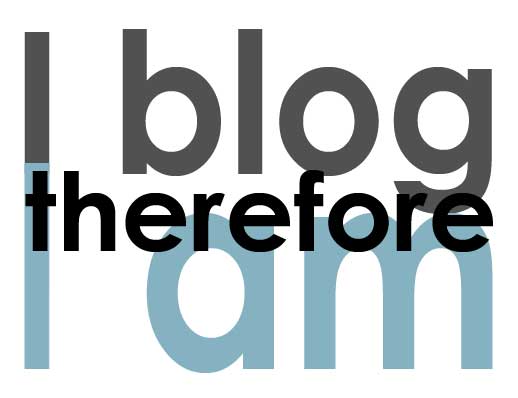From Papyrus to Blog
Engell & O’Donnell’s (1999) interview ‘From Papyrus to Cyberspace’ dates back 15 years. I will highlight a comment by O’Donnell about the ‘gain’ and ‘loss’ experienced with new technology, and also a comment made about technology enhancing democracy. Likely these comments are not disputed by anyone, but I do have a way of illustrating them.
An article by Mulcahy and Paterson (2013) on an academic blog titled ‘Opinions on High’ published by the Law School, University of Melbourne, Australia, helps me to make associations between new technology, education, and democratisation of knowledge.
The article summarised a legal case between Google and the Australian Consumer and Competition Commission (ACCC) in respect to Google’s AdWords product and the reported practice of some third parties to purchase sponsored links via AdWords and then use their competitors’ names among their list of ‘searchable’ keywords.
The issue was that consumers came to feel deceived when they typed keywords for a particular company into Google and unwittingly ended up transacting on websites that were competitors to the company they wanted to locate and do business with.
Google was found not liable for any misleading or deceptive conduct in this case. However, it had to take a suit in the High Court to achieve that outcome. In a sense, Google got the wrap for ‘dramas’ occurring when people used its search engines to locate data and also got the wrap when people purchased services for business promotion and did naughty things. The wrap ended with the High Court win.
The blog article in which this case was discussed was jointly authored by a third year student of law and a professor of law. The university’s server and blogging software was the media for publishing their commentary on the legal principles of the Google versus ACCC case. As an article published on the web, it does not reside within the university community alone; it is available for the general public to retrieve.
Back in 1999 when O’Donnell and Engall were interviewed, it wasn’t common for student academic work to be published on the internet, whether under a professor by-line or their own by-line. Indeed, there may not have been any professor work published online as e-journals may not have existed at that time. The ‘authoritative voice’ was still that of the academic with a tenured position who published research reports in journals and conference papers. An authoritative voice was not a student voice.
Given the example of an undergraduate student co-authoring an article on the blog of the Melbourne Law School, we can conclude that technology has provided education with some ‘gains’. Firstly, there is a means of collaboration between teachers and students. Secondly, there is a means for students to share knowledge and gain a voice. The more that students avail of blogging technology, the more that academic knowledge can be democratized (belonging in many people’s hands, not just the hands of the elite). Finally, web publishing disseminates information from academia to the public, and that contributes to a democratic society (O’Donnell, 1999).
References:
Engell J. & O’Donnell J. (1999). From Papyrus to Cyberspace. [Audio File]. Cambridge Forums.
Mulcahy, S., & Paterson, J.M. (2013). Google Searches and Misleading Conduct: Google Inc v Australian Competition and Consumer Commission. Posted 29 October 2013 at https://blogs.unimelb.edu.au/opinionsonhigh/2013/10/29/mulcahy-paterson-google/.
Note:
Image publishable under creative commons Attribution-NonCommercial-NoDerivs 2.0 Generic (CC BY-NC-ND 2.0). https://flic.kr/p/7CxKN9


I enjoyed your blog post and consider the example of a student assisting a professor an excellent manifestation of the way the internet has assisted humanity through “gains”. I will, however approach the topic from a more pessimistic view in order to evaluate the state of the internet today and the dangers of its evolution for freedom of thought and personal expression.
Although the notion of democracy enhancement through the internet is an incredible and positive idea, it is idealistic. Contrary to the predictions of many, the internet is actually disabling democracy and internet censorship is a growing phenomenon. Censorship exists in all socially organized activity (Peterson Hutchinson &, 1999) including the the socially organized world wide web.
Surveillance around the world is growing and although opportunities for more voices are opening up for many, the occurrence of removal or filtering and disadvantageous placement in search results is growing as well (Hui, 2013; World Wide Web Foundation, 2015 ). Internet censorship is not just limited to blockage which is commonly thought of and instantaneously connected to countries like China in the web of our minds and the web of the internet. A Google search of “Internet Censorship” results mostly in articles pointing fingers at China. Internet censorship in democratic countries is not widely researched although the awareness has enhanced slightly since the the scandal of Snowden. Nonetheless, the majority of people do not know the details or the significance of his discovery and decision to share his knowledge with the world. (Last Week Tonight, 2015) The topic is slowly getting attention and websites such s PEN Canada (PEN Canada, 2015) report cases of censorship in North American countries.
Hui, S. (2014) Tim Berners-Lee Warns Of ‘Growing Tide’ Of Surveillance. The Associated Press.
http://www.huffingtonpost.ca/2013/11/22/tim-berners-lee-surveillance-censorship_n_4325053.html
Last Week Tonight (2015) Last Week Tonight with John Oliver: Government Surveillance (HBO). Retrieved from:
https://www.youtube.com/watch?v=XEVlyP4_11M
Petersen, K. P. & Hutchinson, A. C., (1999) Interpreting Censorship in Canada. Canada: University of Toronto Press. Retrieved from http://site.ebrary.com/lib/ubc/detail.action?docID=10218815&token=59d29a0f-fa94-4b15-bb41-b977432e3f41
PEN Canada Censorship tracker (2015) Retrieved from
https://censorshiptracker.crowdmap.com/reports/index?sw=-125.702557%2C49.243277&ne=-122.494188%2C52.975539&s=1138770000&e=1433131199&z=3
World Wide Web Foundation (2015) The Web Index. Retrieved from:
http://thewebindex.org